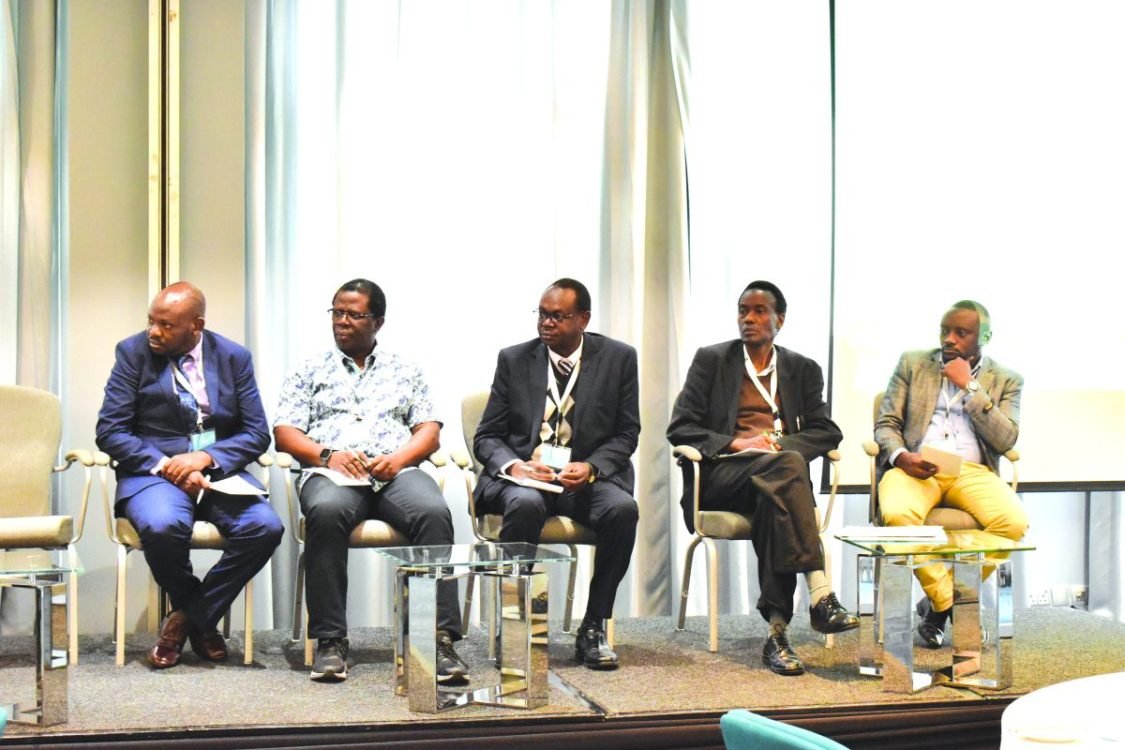Experts seek quick action to save Nairobi taps from running dry

Water scientists have raised alarm over impending crisis in Nairobi caused by dry wells, calling for urgent strict interventions against rampant abstraction of the scarce commodity.
This comes at a time when the surface water is increasingly becoming polluted from heightened human activities, with scientists linking pesticide chemicals from agriculture and poor waste water drainage as key sources.
Much of this water, Professor of Geology at the University of Nairobi, Daniel Olago further reveals, is unusable, and not even for irrigation.
Speaking during a meeting with science and climate journalists in Nairobi, he cautioned that the time left for these wells drying up, is running out and requires quick measures and adequate resources to address. However, he lamented a lack of quality data to conveniently push this agenda to fruition.
“We have data, yes. But much of what’s available is quite unreliable,” he cautiously says, but notes, “you will be shocked at the amount of water being extracted, if we were able to see the real picture.”
Prof Olago is spearheading the REACH Programme on improving water security in Kenya’s drylands in light of climate change, the case of Kitui and Turkana counties. This Programme is based at the UON’s Institute for Climate Change and Adaptation.
Fresh data
“There’s urgent need for collaborative efforts, government, private sector and development partners, to mine fresh data on the City’s underground water reservoir,” he added, pointing out that getting and publishing new data on the status of underground water in Nairobi requires a lot of resources.
Documented findings place the number of drilled wells in Nairobi at 6,000 by 2023, out of which, only 2,000 are in the Water Resource Management Authority (WARMA) records. This means, about 4,000 are illegally dug.
Once aquifiers are depleted by abstracting water, he explains, the poles within that rock, which is holding the water, collapse leaving less storage.
Further drilling
Nairobi, he further points out, has a multi level aquifer system and with deeper digging many borehols have gone beyond 300 metres.
Professor Olago says that further drilling puts Nairobi at risk of exhausting groundwater as drillers target the last water aquifier in the city going up to 400 metres.
Geologists warn that Nairobi risk going the Cape Town way, which in February 2018 instructed its residents not to use baths, and also to shower for less than two minutes, as most of the reservoirs went dry.
With the growing population in the Cityand occasioning high-rise property development, more water would be in demand, but scientists emphasise that time is running out for groundwater availability.
“Drilling boreholes is a science that must follow strict rules to ensure they are beneficial to all dynamics including the environment,” Prof Olago said, during a session on Improving Water Security in Kenya’s Drylands in Light of Climate Change, hosted by REACH, a global research programme to improve water security for the poor.
Climatic conditions
Prof Olago and a host of geologists say they are uncertain how these underground reservoirs replenish during the rainy season and behave during different climatic conditions. Therefore, abstractors risk depleting or destroying them soon.
The UON professor notes that there lacks reliable data on what is available and time left before the aquifiers dry out.
In Johannesburg, the government recently appealed to the citizens to use water sparingly as it cut water use for a whole.









